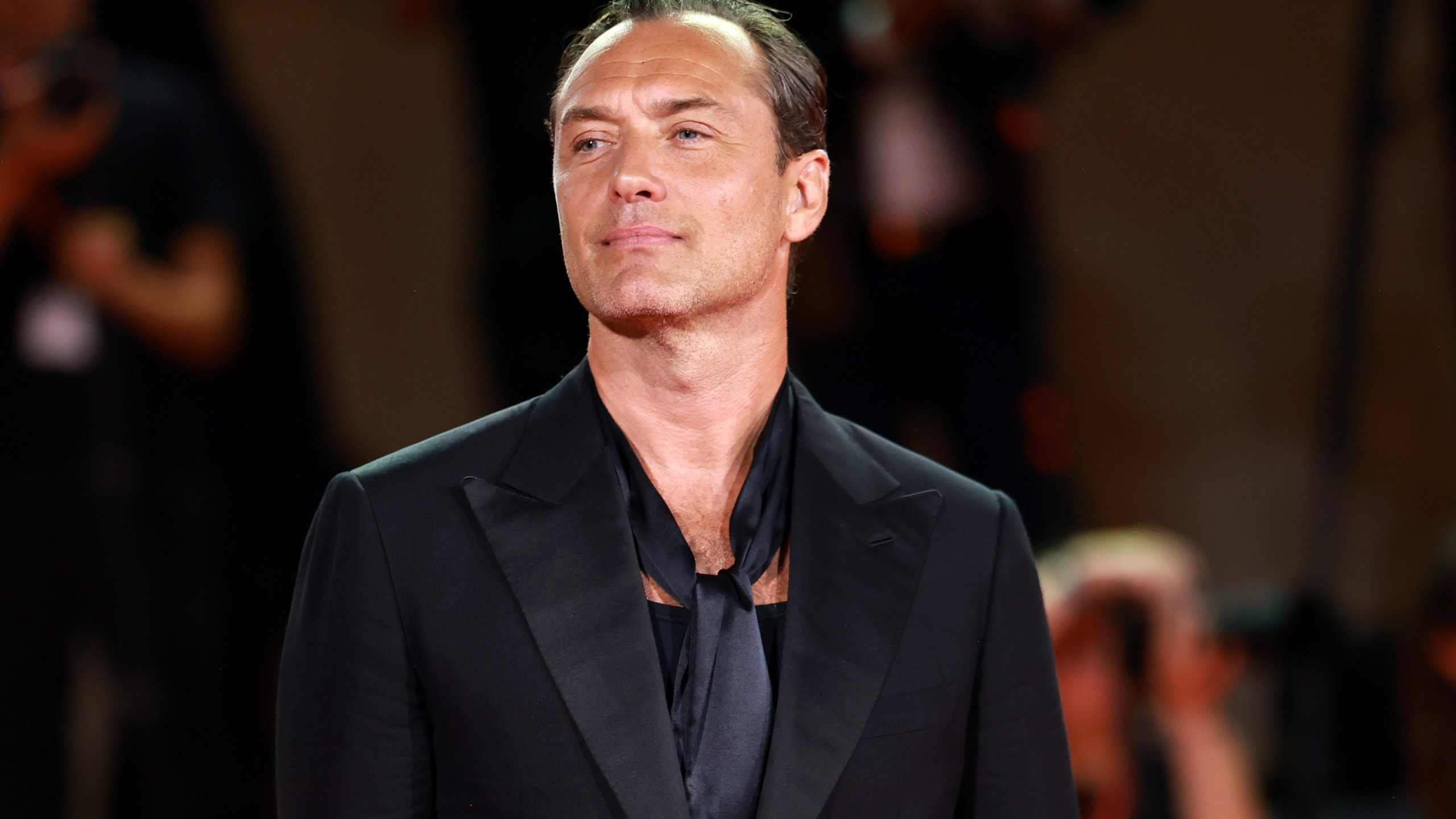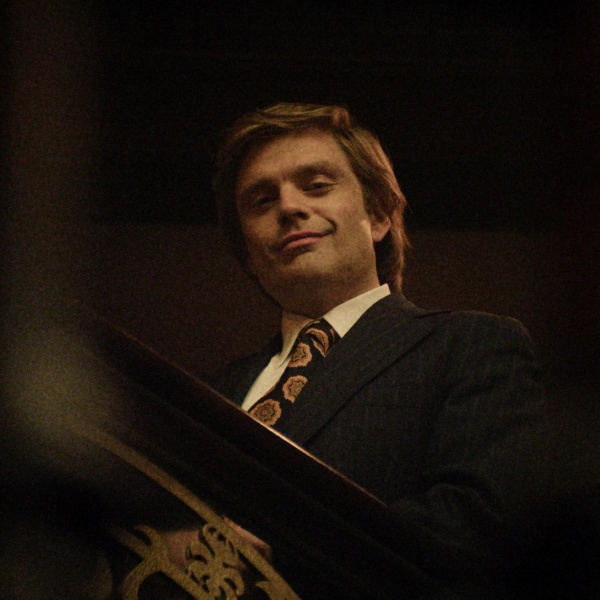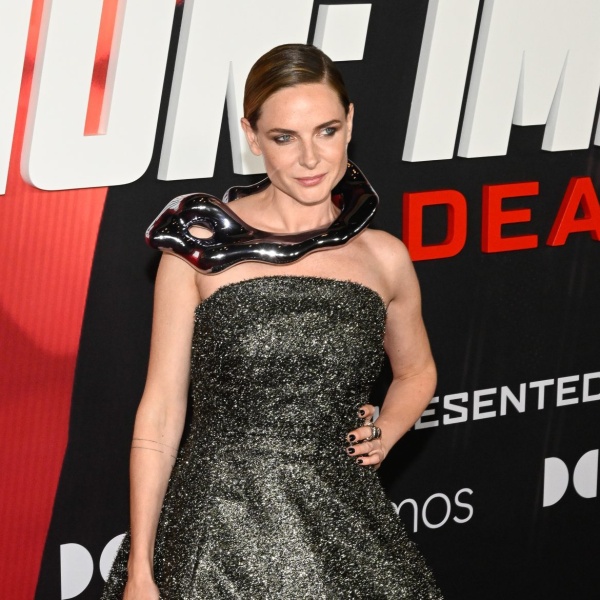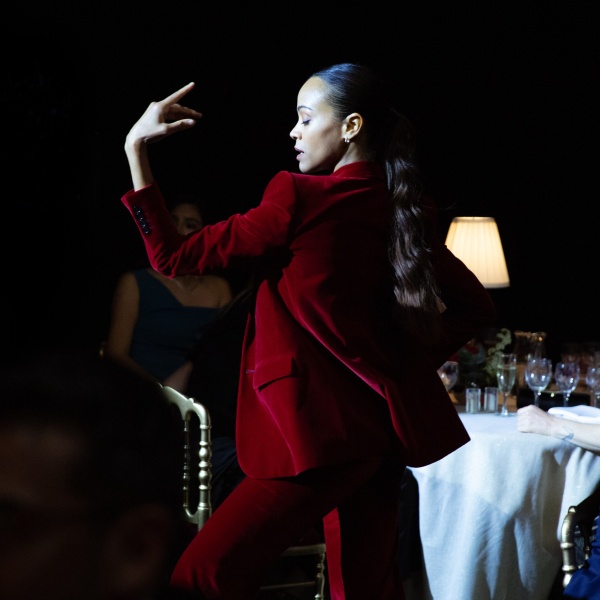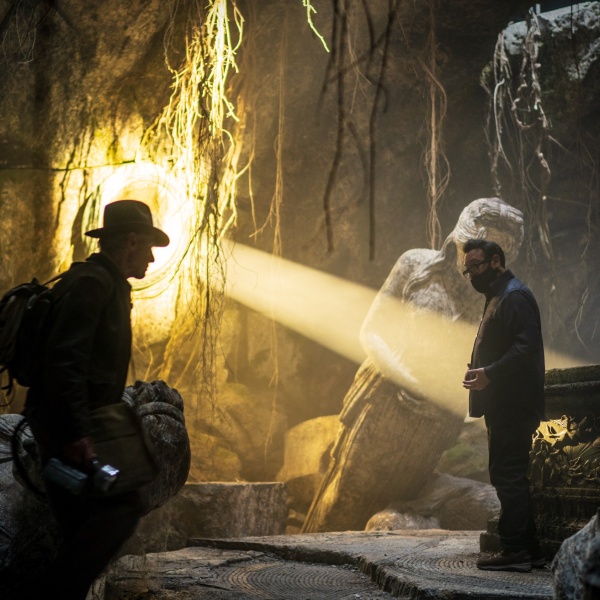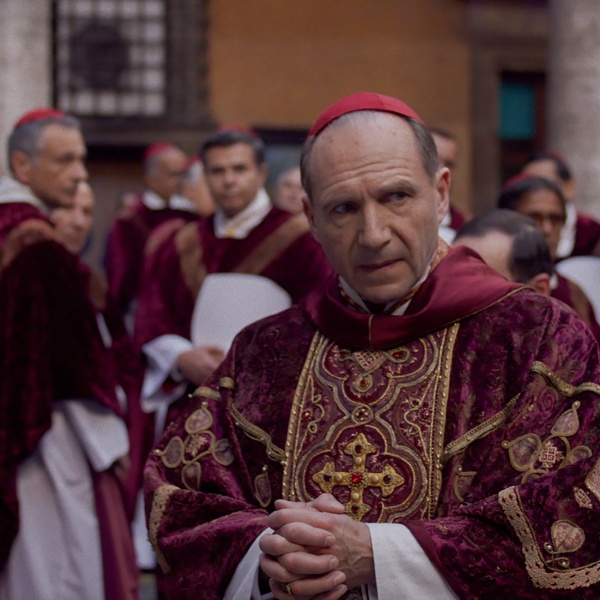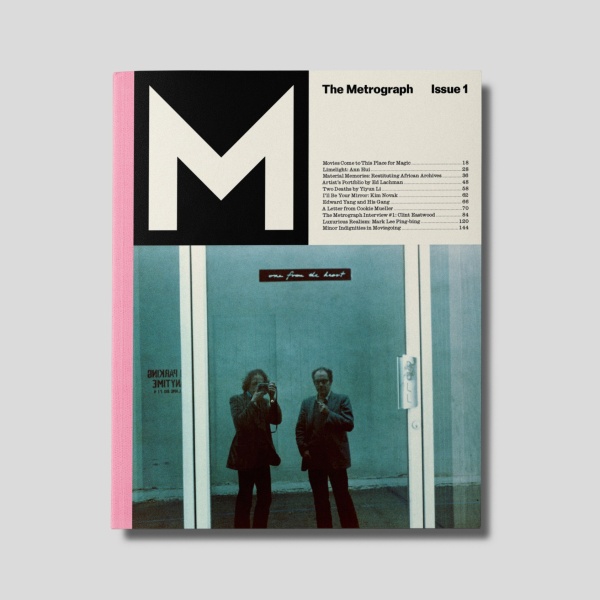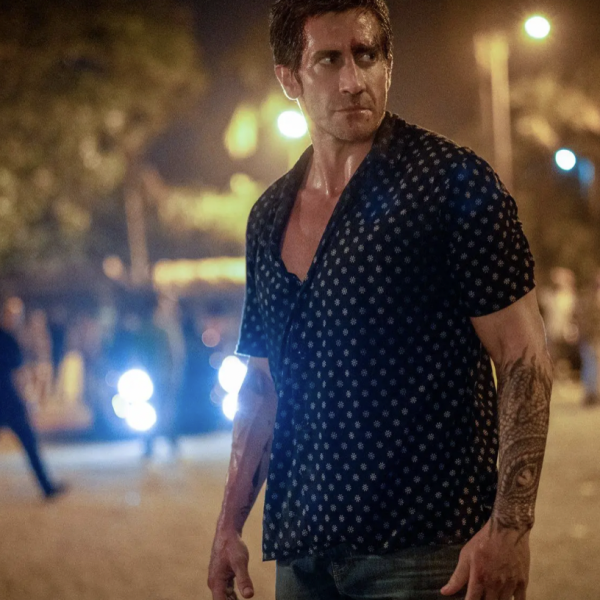Jude Law has been killing a wide range of roles since he broke out in Anthony Minghella’s “The Talented Mr. Ripley” in 1999. Twenty-five years later, Law’s latest performance as grizzled FBI agent Terry Husk in hardboiled ’80s actioner “The Order” (Vertical, December 6) is a departure: The actor not only masters an American accent (he’s done that before, in “Cold Mountain” and other roles), but he’s embodying a gun-wielding Western masculine archetype: rugged, angry, laconic, righteous. Think Clint Eastwood, although Law told me that he channeled Gene Hackman and Paul Newman in our video interview (above).
Law’s latest incarnation since he founded Riff Raff Entertainment in 2017: producer. “I love finding material,” he said. “I love reading. I love thinking about who would be good in what role and taking the reins and being able to nurture ideas. I still sit and hope that I get phone calls from certain filmmakers who are making their own things, but when you just spend your time doing that, there’s a certain sense of powerlessness. So producing is a way of taking slight control over the future. You go through ebbs and flows of success and failure, and being the hot ticket and not being the hot ticket. And so you have to dodge those bullets a little. But right now, it feels like my choices are honestly on ‘what haven’t I done? How can I stretch and build this acting muscle, and who am I?’”
Riff Raff came aboard “The Order” at the script stage, excited by the potential for the hardboiled action story adapted by “King Richard” writer Zack Baylin from the 1989 nonfiction book “The Silent Brotherhood” by Kevin Flynn and Gary Gerhardt about how the FBI chased down white supremacist terrorist groups in the Pacific Northwest.
Law’s first choice for director was Australian Justin Kurzel (“Nitram”). “This extraordinary untold true story, at the heart, had these uncomfortable, relevant tentacles to today’s divisive, political social terrain,” said Law. “There was also this potential for a great genre movie, a thrilling cat-and-mouse drama. And the one person who deals with this kind of male, violent terrain brilliantly, unpacks it with such clarity and humanity, is Justin Kurzel. He elevated the whole thing from the day he got involved. [He] has a non-judgmental approach to these characters, looking at their decision-making, the communities around them, and the world that encourages them to behave the way they do, and see through the actions that they enact.”

“The Order” is partly fictionalized. “The biggest change is my character,” said Law. “[Baylin] made a choice early on to draw on some of the special agents that were involved in the case, but amalgamate them. I was grateful because it gave me an opportunity to develop what Husk needed to influence and steer the story. This guy is broken physically and emotionally; he thinks his greatest battles are behind him, and that he’s almost halfway to retirement, but in fact, the biggest fight is in front. But an awful lot of it really happened.”
Law is unrecognizable as Husk. He built up his body and grew a mustache. “We talked about performances by people like Hackman and Newman in their 50s and 60s,” said Law, “Popeye Doyle in ‘The French Connection,’ and where and how they were allowed as performers to play these sometimes damaged, willful men, but who had a good heart. You had to have faith that they were morally correct, but they sometimes used immoral ways to win their moral argument.”

Law read and interviewed agents about the period to get an understanding of the mindset. “What is it to be that devoted?” he said. “What sparks that initially? Is it a belief in the agency? In America? Is it a belief, sometimes, in just catching a bad guy? And trying to understand the physical effect of the pressures of that job, losing family, drinking and smoking that much to relieve the stress. Men like that were looked at in a different way when they were making movies in the 70s and 80s, and they were allowed a little more elbow room to be themselves. It was interesting to embody him and try and remember what manhood was then, and masculinity.”
Though set in the ’80s, “The Order” is all too relevant today. “It was this historical piece that had this incredible timely substance to it,” said Law. “It’s important to dismantle these situations so that we hopefully learn from them and understand rather than point fingers or say, ‘this is wrong, this is right. He’s good, he’s bad.’ I sincerely believe very few people are bad. A lot of bad decisions are made, and toxic environments are created, in which bad decisions are easier to make.”
Known for his golden-boy looks, Law has long tried to move away from them. “I was always a little uncomfortable in my 20s,” he said. “I took the craft of acting seriously. I was passionate about it. I was inspired by actors who I saw as fearless and boundless, and I wanted to do the same. And it irritated me that there was attention being put more on what I looked like than on the work I was doing. And I probably took that too seriously for a while and beat myself up about it and said no to certain things and tried, like any 20-year-old, to prove my chops. I don’t feel I ever leaned into it fully. But right now, on the other side of 50, I’m happy and excited to be able to take on roles where that is not the emphasis, and if it is, then it’s the emphasis of someone who used to be the good-looking guy. There’s not a lot to get out of the character who is simply the good-looking guy. It’s the same for women, there’s not a lot to play with.”

That’s why Law steered into so much character acting, from Gigolo Joe in Steven Spielberg’s “A.I.” in his 20s and Maguire in Sam Mendes’ “The Road to Perdition” to gout-riddled King Henry the Eighth in “Firebrand.” “It’s the area where my curiosity lies,” said Law. “There’s a challenge in trying to mine them for plausibility and embody them. You have to find the truth within yourself. But you also have to layer them up so that they are three-dimensional and realistic. And not go too far so that you’re playing a caricature. It’s a lovely juggling act. To me, the sweet spot of what I do is where you’re physically, internally, and superficially imagining what they must be like, but also not signposting.”
“The Talented Mr. Ripley” marked Law’s big breakout role and his first Oscar nomination. “Yeah, my career changed after ‘Ripley,’” said Law. “I’d done a couple of films before, and they’d been pretty well received, and I’d gotten those early promising young actor awards and recognition. But now I was in the company of all these people who were pretty heavy hitters already, and certainly a couple of steps further down the line than me. Matt [Damon] was doing ‘Good Will Hunting,’ Gwyneth [Paltrow] had just won for ‘Shakespeare in Love.’ Philip [Seymour Hoffman] was about to do ‘Boogie Nights’ and Cate Blanchett was about to do ‘Elizabeth.’ Being in their company lit a certain light on my work. And things changed.”
A second Oscar nomination followed for Minghella’s “Cold Mountain,” his first American role. And Law enjoyed his comedic character role as Dr. Watson in the Sherlock Holmes franchise opposite Robert Downey, Jr. A third movie is in the offing. “The journey of getting that right has been almost more complicated than making the first two films,” Law said. “There have been various scripts. With the amount of time that passed, we want to deliver something special and extraordinary, but also investigate the time that’s passed. What have they been doing? Have they been back together? We got pretty close a couple of years ago, and then it all went quiet again.”
Law and the Downeys are friends; he went to see Downey’s play in New York, “McNeal,” and learned there’s a new script to read. “Hopefully, this is the one. Otherwise, what will happen eventually is we’ll make it one day, and we’ll both be withered, old, gray.”

On Law’s wish list of who he’d like to work with: the Coen brothers and Paul Thomas Anderson. “Three people I’m hoping to go back and work with are Justin Kurzel, David O. Russell, and Brady Corbet,” he said. “Even from his first film, ‘Childhood of a Leader,’ It was clear this was an incredible talent, and I had such a great time on ‘Vox Lux.’ It was such an unusual experience. I’m so proud and so happy that he’s having the success he is with [‘The Brutalist’].”
The landscape for making mid-range budget movies like “The Brutalist” and “The Order” has changed.
“It is amazing that it got made,” said Law. “It’s never been easy. The sad side is all this creative energy is spent fighting, and that’s not because you’re asking for a ton more money or a ton more time. It’s just a little more so that you’re not up against it. Now, sometimes being up against it actually can help the peace. Case in point, on ‘The Order” we were fighting to the first day for a little more time, a little more budget. And in fact, Justin made such a bold decision. ‘Nope, this is what we’ve got. We are going to shoot this at such top speed, we’re going to capture that energy, it is going to be in the film.’ In a weird way, it paid off. But nonetheless, the fight to get it there and then get it seen is exhausting.”

Another example: period drama “Firebrand” started out well at Cannes and then got hit by the strikes. “So we couldn’t promote it,” said Law. “We put a pin in it for a year, and it’s slightly lost its energy, certainly here in the States. It did pretty well in Europe. Again, it’s finding that distributor that understands a film like ‘The Order’ or ‘Firebrand,’ and knows how to get to the audiences that want to see it. And then it’s demonstrating to the business as a whole that those audiences are out there. You make it for a sensible figure. You get that sensible figure back. Not everything’s going to be some smash hit, but be smart, you know?”
On the TV side, “Star Wars: Skeleton Crew” (Disney+, December 2) came Law’s way a couple of years ago, pre-strike, and was then postponed. He worked with “an extraordinary group of directors,” he said. “We’ve got David Lowery, Jon Watts is the showrunner, the Daniels, Lee Isaac Chung, Bryce Dallas Howard.” After a childhood watching Disney animation, Law remembers seeing “Star Wars” in 1977 and “being blown away. It was life-altering, and it dominated my play for the next 10 years as a kid. Jon had a brilliant concept: a lot of our generation remember seeing [‘Star Wars’] through the eyes and fantastical imagination of children. He’s made the protagonists kids in that world, trying to survive. I play someone who is mysterious, contradictory, potentially a helping hand, potentially not.”

Next up: Law has just finished “Black Rabbit,” an eight-episode limited series produced by Riff Raff, pitched by screenwriter Baylin during “The Order.” “It’s about a guy who runs a successful downtown restaurant/nightclub in New York,” said Law. “A brother returns and destroys his world. It looks at all the characters behind the scenes, in the restaurant, in the front of the house, the financiers, the friends. Jason Bateman plays my brother and directed the first two, Justin Kurzel directed the final two.”
